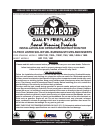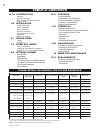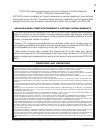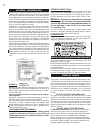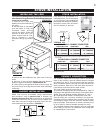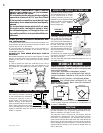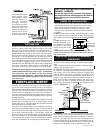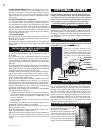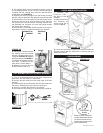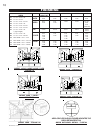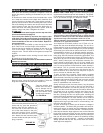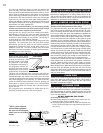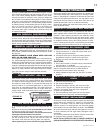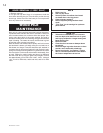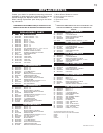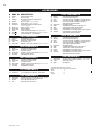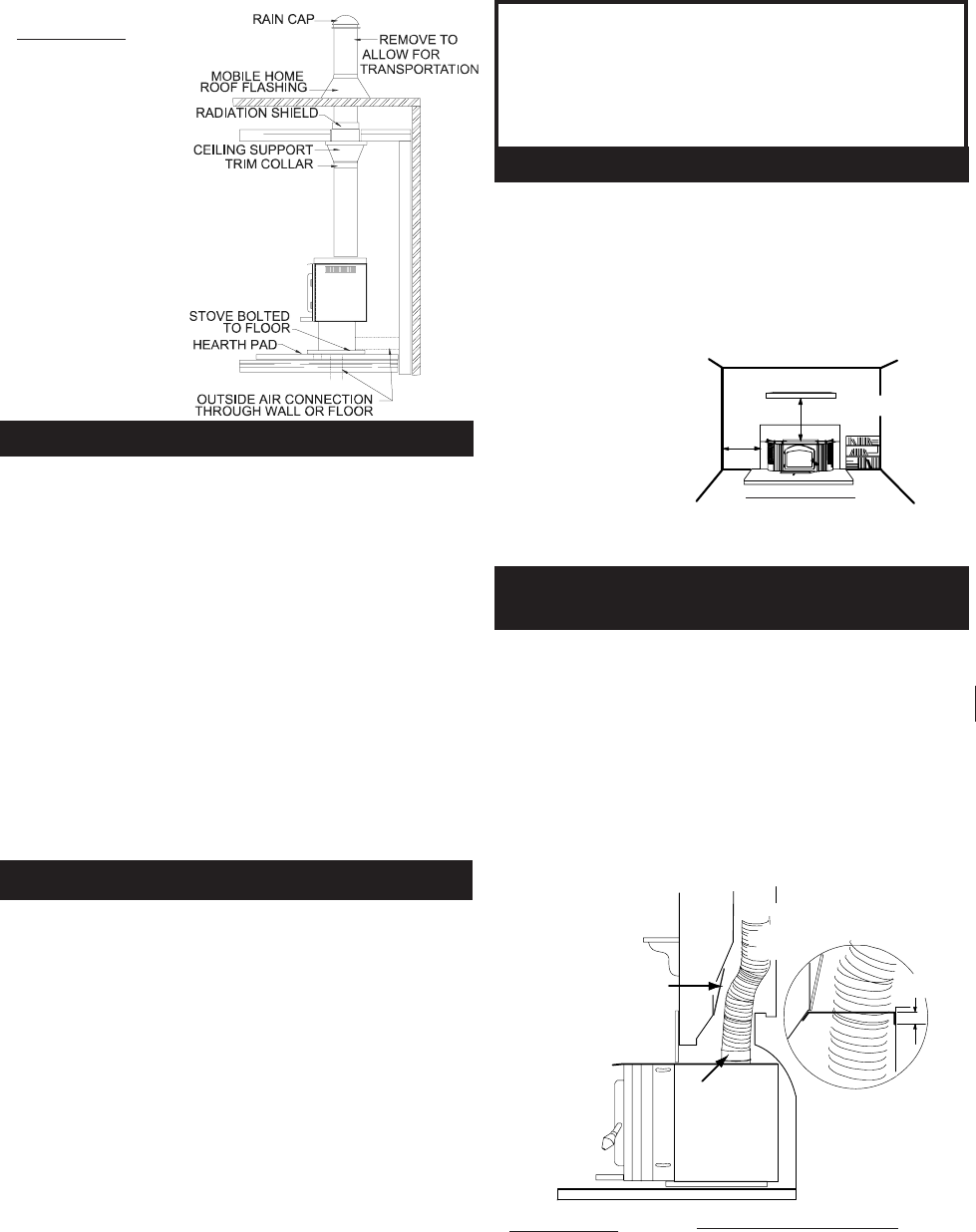
7
W415-0512 / B / 11.15.05
It must be installed be-
tween ceiling joists,
with radiation shield
and roof flashing, so
that the structural
strength, insulation
and waterproof quali-
ties of the home are not
lessened. Seal with
silicone to maintain a
vapour barrier at the
chimney and outside
air pipe penetrations.
Connection from the stove's air intake to the outside is man-
datory in mobile homes only, either through a hole in the
wall to line up with the knockout in the pedestal back, or
through a hole in the floor to line up with the hole in the
pedestal base. Use a fresh air kit. Secure the 4 inch diam-
eter aluminum liner by flaring the end once it is inserted
through the 4-1/2 inch diameter hole in either the back or
base of the pedestal. If the air intake is through the floor, the
hole in the pedestal back must be covered with sheet metal
to avoid cold air spillage into the room. A cover plate is
available from your Wolf Steel Ltd. dealer. Avoid cutting away
floor joists, wall studs, electrical wires or plumbing. Seal
around the outside pipe with insulation to prevent drafts.
If room air starvation occurs because the fresh air
intake is blocked with ice, leaves, etc., or because
the stove door was left open, or due to a strong
exhaust fan operating etc., dangerous fumes and
smoke from the operating stove could be drawn
into the room.
Your EPI 1101 and 1401 insert firebox is the exact duplica-
tion of the clean-burning technology found in all Napoleon
EPA certified freestanding stoves and in particular that of
the EPA 1100 and 1400. External modifications have been
made to allow its installation as a "functional fireplace in-
sert" with a heat circulating blower system and a means of
enclosing the solid fuel burning fireplace cavity for greater
heating efficiency.
The EPI 1101 insert must be installed into a solid fuel burning
fireplace that is at least 16 1/2 to 21 inches deep, 28 1/2
inches wide and 21 1/2 inches high with an approved lined
chimney at least 15 feet high (4.6m).
Your EPI 1401 fireplace insert must be installed only into a
solid fuel burning fireplace that is at least 14 inches deep 26
inches wide and 22 inches high with an approved lined chim-
ney at least 15 feet high (4.6m). This minimum recess can
only be achieved if the opening height is sufficient enough to
allow the connector to fit under the noncombustible facing.
The fireplace and chimney must be constructed in accord-
ance with all national and local building code standards.
HINT FOR INSTALLING PORCELAIN
ENAMEL INSERTS:
Ensure the base of the porcelain side panels
are protected from rubbing against the hearth
when sliding your insert into the masonry
fireplace.
Clean all ashes out of the inside of the fireplace. Make
sure that the chimney and fireplace are free of cracks,
loose mortar, creosote deposits, blockage or other
signs of deterioration. If necessary, have any repair
work done by a qualified professional before installing
the insert.
Do NOT remove bricks or mortar from the fireplace. In case
of an outside air inlet or ash dump, fill with fiberglass insu-
lation. Adhere to minimum clearances as shown in FIGURE
12.
Do NOT place any com-
bustible materials (furni-
ture, firewood, etc.) within
48 inches in front or 36
inches at the side of the
insert.
Combustible material must not protrude more that 1"
to the side of the insert or between the mantle and the
top of the insert.
1. Remove the fireplace damper or fasten it permanently
open.
* We recommend the following method of sealing off the
damper area around the liner.
2. *Measure the throat of the fireplace and mark this shape
on a piece of 24 gauge sheet metal (flue cover); cut a six-
inch (6.75”) hole to lie directly below the fireplace flue
opening. Allow two inches of material for a flange on all
sides and cut to these measurements. Bend down the
flanges. If you have never done this before, it might be a
good idea to make a cardboard pattern and test it first.
Fasten this flue cover in position as high as possible with
two masonry screws per side through the flanges into the
fireplace. FIGURE 13.
In Canada: Install a listed 6 inch diameter flexible stain-
less steel liner from the top of the chimney to the insert flue
collar. Attach a stainless steel liner connector or elbow to
the liner and insert onto the flue collar. Fasten with three
screws. Secure the top of the liner to the chimney cap us-
ing a liner support and chimney flashing. Cap the top of the
chimney liner assembly using an approved rain cap.
28" TO MANTLE
17"
SIDE FACINGS
COMBUSTIBLE
PROTRUDING
DAMPER
REMOVED OR
FASTENED
OPEN
FLUE
CONNECTOR
LISTED
CHIMNEY
LINER
2"
FLANGE
FLUE COVER
INSTALLATION
FIGURE 12
FIGURE 13
MODEL 1401 Illustrated
FIREPLACE INSERT
OUTSIDE AIR
PRIOR TO INSTALLATION
INSTALLATION INTO A MASONRY
FIREPLACE
FIGURE 11



